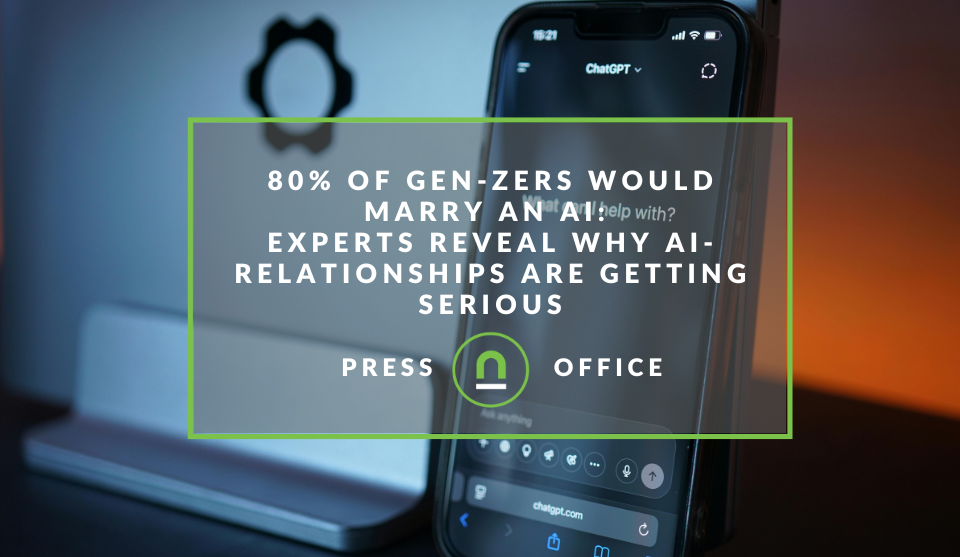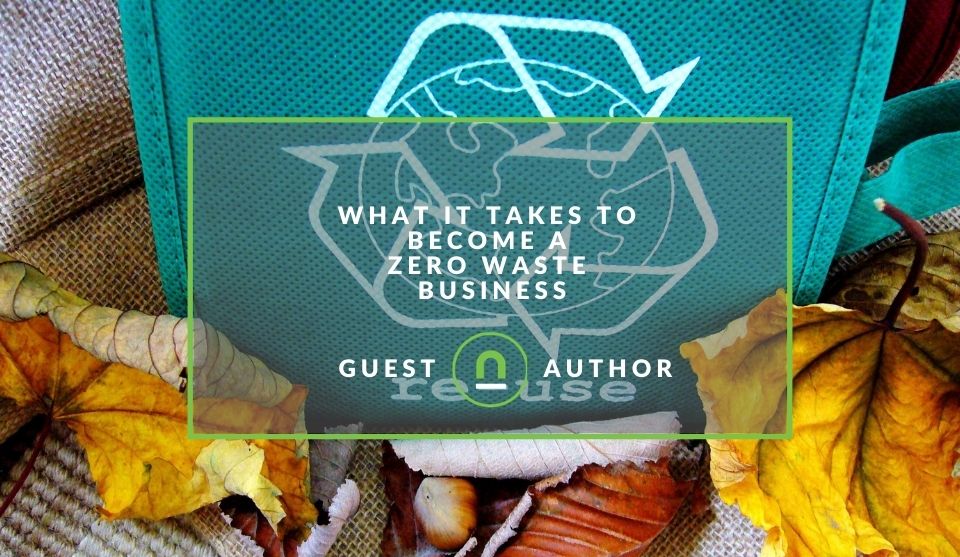Recent posts

Press Releases
Africaworks Accelerates The Rollout Of Real Estate Investment Platform
20 January 2026

Press Releases
80% of Gen-Zers Would Marry an AI
19 January 2026

Press Releases
The Rise of AI Computing Power Assets
16 January 2026

Industry Experts
Common ASO Mistakes African App Developers Make
09 January 2026
Popular posts
Extravaganza
Trending Music Hashtags To Get Your Posts Noticed
24 August 2018
Geek Chic
How To Fix iPhone/iPad Only Charging In Certain Positions
05 July 2020
Extravaganza
Trending Wedding Hashtags To Get Your Posts Noticed
18 September 2018
Money Talks
How To Find Coupons & Vouchers Online In South Africa
28 March 2019
What It Takes To Become a Zero Waste Business
22 October 2020 | 0 comments | Posted by Christopher D Childs in The Great Outdoors
Many businesses, both large and small, are interested in reducing their environmental footprint by becoming Zero Waste organisations. Increasingly, companies recognise that they can play an essential role in their efforts to Go Green by eliminating the creation of waste.
Additionally, the elimination of waste can translate into cost reduction opportunities for business, while helping achieve social aspirations of business operators, investors, customers and employees alike towards Going Green. Now, the question is
“What does it take to be a Zero Waste business?”
Before answering this question, let’s consider what “Zero Waste” actually means.
Zero waste— Explained
Zero waste is a philosophy and design principle to redesign systems for resource usage—from product design and manufactures through to waste disposal—to eliminate inefficient and contaminating practices that eventually lead to the generation of waste.
Zero Waste initiatives tend to focus on landfill diversion through recycling. Still, they should be understood to a broader “whole system” approach that embraces the minimisation of resource consumption and the development of a closed-loop system that supports a Green Economy.
A Zero Waste approach works towards the elimination of risk to society and the environment from toxins, emissions and hazardous waste. An essential component of Zero Waste is the Zero to Landfill initiative, which specifically addresses the elimination of waste going to landfills.
Zero Landfill is more readily measured, and can be validated through independent assessment of Zero to Landfill claims.
Steps to make your business a “Zero Waste Business”
Many large organisations such as GM have achieved Zero to Landfill status through concerted efforts. Following are some of the steps that you can take to make your business a Zero Waste Business:
Identify the benefits
There are commercial benefits of being a Zero Waste business in terms of eliminating the cost of disposal as well as the potential to generate revenue from recycling residuals.
Additionally, there may be other cost savings associated with upstream activities that target reduced usage of resources. Also, customers increasingly state a preference for businesses that are operating in environmentally friendly ways. Achieving Zero Waste status can be a competitive advantage versus competitors which do not have this attribute.
Treat zero waste as a business project
Every business sets several goals and generates specific plans to achieve those outcomes. Sometimes, non-core goals such as Zero Waste are stated, but no procedure is put in place to ensure success. If you do not set Zero Waste as a goal and work towards it, it will not happen automatically.
Identify and remove waste sources
Once your business sets the goal of being a zero-waste business, all sources of waste in your business must be identified. This can be done internally or through the help of recycling service providers which offer this service. Once the sources are identified, you can take necessary actions to remove wastes or convert those wastes into resources.
Redesign processes if necessary
It is not always easy to redesign existing business processes. But when you identify the steps in the production process that generates waste, you need to redesign the processes, without harming the quality and cost-efficiency of production and operations.
Reuse and recycle
When eliminating waste sources is not entirely possible, you can still make your business a zero-waste business thorough reuse and recycling. Once waste streams have been identified, several options are available. For larger generators with separate waste streams such as baled old corrugated cardboard or baled plastic film, deals may be made directly with recycling companies to buy this material.
What if you generate only small amounts of material?
For smaller generators, it may make sense to work with a recycling company that will take commingled recyclables or otherwise help it to achieve waste diversion. One example of such a service provider is Urban Impact.
What about those items that seem unrecyclable?
If you hit a brick wall concerning not being able to recycle a waste stream, it may make sense to work through a recycling provider. One Man’s Waste. Is a recycling provider that prides itself in finding recycling opportunities for what it refers to as “exotic recyclables” or not typically recycled items. A lot of unusual things can be recycled.
Go for sustainable packaging
Packaging materials account for one of the largest sources of waste generation. Suppose your business shifts to more sustainable packaging; the amount of waste generated in your business should decrease significantly.
Reusable packaging can be one great way to eliminate waste. Likewise, corrugated cardboard transport packaging enjoys a 91 percent recycling rate in the US. Other approaches to sustainable packaging include lightweight packaging, product concentration, and packaging postponement.
Triple bottom line
No matter what the nature of your business, it should strive to achieve the triple bottom line of economic, social and environmental success. An essential first step is to understand what Zero Waste is about and taking the steps needed to achieve success.
Being a zero-waste business, therefore could mean that you want to help save the planet. Your efforts prove that you are concerned, not just in earning money, but also in ensuring that life continues to happen.
About the author
Christopher D Childs works as a review writer for Resume Writer Review. It allows him to improve his critical and creative thinking skills. Moreover, he keeps up with modern tendencies of employee engagement, motivation and management.
Tell us your story
Would you like to write for nichemarket just like Christopher has? Find out how to submit a guest post and when you're ready, you can contact us.
Contact us
If you would like us to improve the advertising for your site or want to know more about digital marketing for your business, then don’t be shy we’re happy to assist. Simply contact us
Are you looking to promote your business?
South African Business owners can create your free business listing on nichemarket. The more information you provide about your business, the easier it will be for your customers to find you online. Registering with nichemarket is easy; all you will need to do is head over to our sign up form and follow the instructions.
If you require a more detailed guide on how to create your profile or your listing, then we highly recommend you check out the following articles.
Recommended reading
If you enjoyed this post and have a little extra time to dive deeper down the rabbit hole, why not check out the following posts on environmentalism.
Tags: Recycling, Guest Post
You might also like
The Rise of AI Computing Power Assets
16 January 2026
Posted by Rehman Ali in Press Releases
An introduction to Cloud mining and monetising cloud computing as DLMining Reshapes Wall Street's New Anti-Inflation Investment Paradigm
Read moreThe South African Industrial Tech Revolution
05 January 2026
Posted by Stephen Johnson in Ace of Trades
Explore how cutting-edge software and technology are driving the South African industrial tech revolution, optimising operations and boosting global ...
Read more{{comment.sUserName}}
{{comment.iDayLastEdit}} day ago
{{comment.iDayLastEdit}} days ago
 {{blogcategory.sCategoryName}}
{{blogcategory.sCategoryName}}

